10 Years in Tech: Lessons from the Fold-Up Table to Director
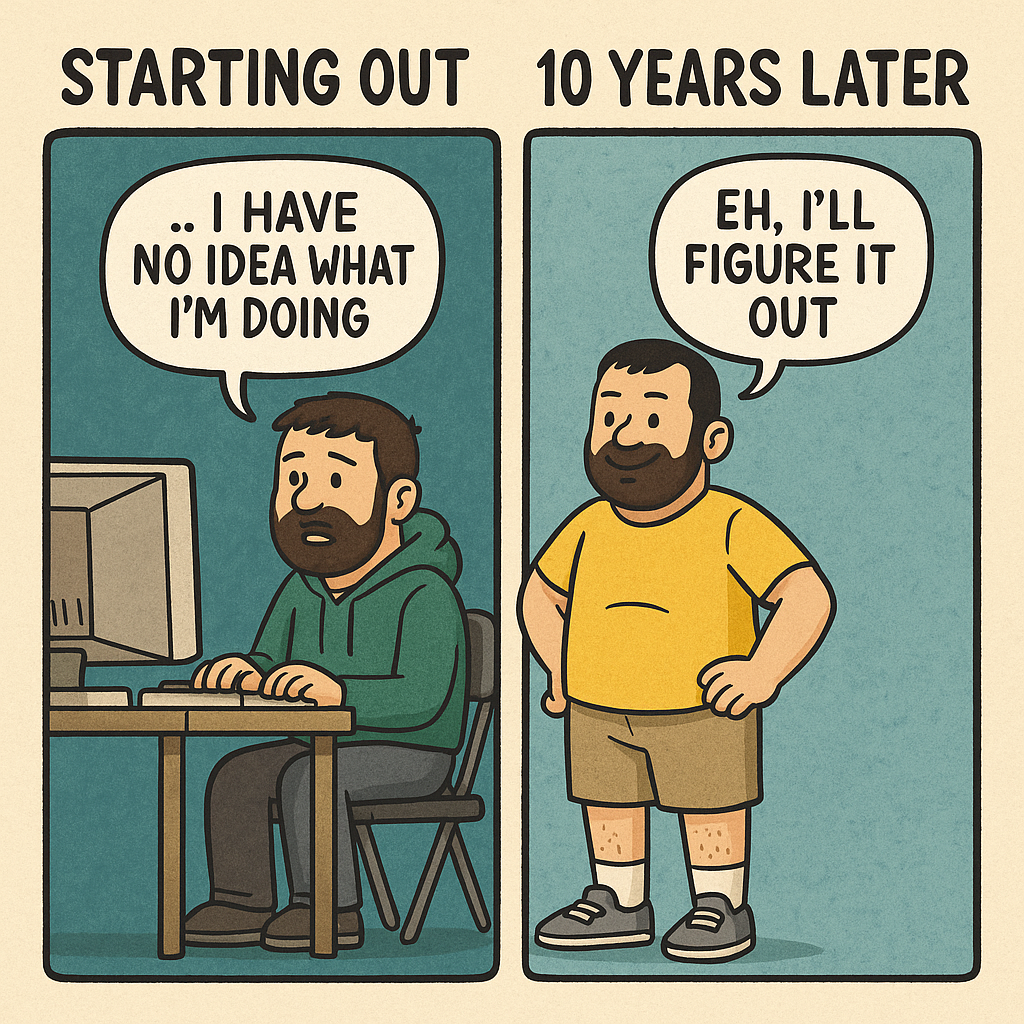
Spoiler: It’s not all shorts and T-shirts—but that part is pretty great.
A couple of months ago, I hit a milestone: 10 years in the software development industry. And like any good dev, I reflected... by writing a blog post.
What follows isn’t just a highlight reel. It’s the real stuff—how I got here, what I learned, and why “just figure it out” became both a survival strategy and a philosophy.
Let’s break it down by chapter.
📘 Years 1–2: Enter the Industry, Stage Left
My tech career started in a very non-traditional way:
Age: 31
Role: Part-time “Associate Software Engineer” (aka intern, but not technically an intern)
Company: Still the same one I’m at today
Stack: Perl. Yes, Perl. Seriously.
At the time, I was finishing up my undergrad degree and working 25 hours a week. The company hired me not because I knew Perl (I didn’t), but because they believed I could learn.
I worked at a fold-up card table shoved against a brick wall. I spoke to maybe 3 people my entire first six months. And I was wildly overdressed on day one. Apparently, T-shirts and shorts were the move—even in February.
But you know what? I stuck with it.
I asked questions (with proof I tried to figure it out first).
I fixed bugs.
I learned how real dev teams function.
And when I graduated, they made me a full-time offer—surprising, because I was convinced no one even knew I existed.
🧠 Years 3–5: Leveling Up, On All Fronts
My first promotion came about a year and a half in: Software Engineer.
I wasn’t asking constant questions anymore.
I was mentoring new hires.
I started grad school while working full-time.
I was learning—constantly—and loving it.
More importantly, I was figuring out how to be valuable beyond writing code. I was becoming a developer who could mentor, think critically, and lift up the team around me.
👨🏫 Years 6–7: Senior, Team Lead, and Teacher
By now, I’d earned my stripes.
I was promoted—twice at once—to Senior Software Engineer + Team Lead.
I became “the trainer” for all new devs.
I switched teams to gain exposure to different clients and technologies.
I started teaching computer science courses as an adjunct professor—because I love helping people learn (not because of the paycheck, trust me).
The code wasn’t as hard anymore.
The leadership part? That’s where the growth kicked in.
📈 Years 8–10: Pandemic Promotions and Impostor Comfort
Enter the pandemic. Chaos hit. Then… an explosion of business.
We went on a hiring spree—30+ new devs in a short time. I interviewed many. Hired many. Mentored even more.
And during all of it, my career went into overdrive:
Team Lead → Delivery Manager
Delivery Manager → Director
Most of my day now is meetings.
I write far less code.
But I still mentor.
I still teach.
And—I still learn. Every. Damn. Day.
That anxious “do I belong here?” feeling from my first year?
Yeah, it never fully went away.
But I’ve learned to be comfortable being uncomfortable.
Because that means I’m still growing.
🧭 What I’ve Learned So Far
I’ve learned a few things that have stuck with me. Here they are, no fluff:
Never stop learning
Make real connections with people
Change is inevitable—embrace it
Being different can be your greatest strength
Wearing shorts and a T-shirt to work is glorious
Never forget where you started
Get. Shit. Done.
🎯 Final Thought
I’m still at the same company that gave me a shot when I was a part-time developer finishing school.
I’ve seen new faces come and go.
I’ve worked on projects I didn’t think I could handle—until I did.
And I’ve built a career on asking questions, making mistakes, and always standing back up.
Here’s to the next 10 years.
And if you're just starting your first 10?
You're gonna be just fine.
✊ mullins.io
Real talk from a dev who started at a card table.
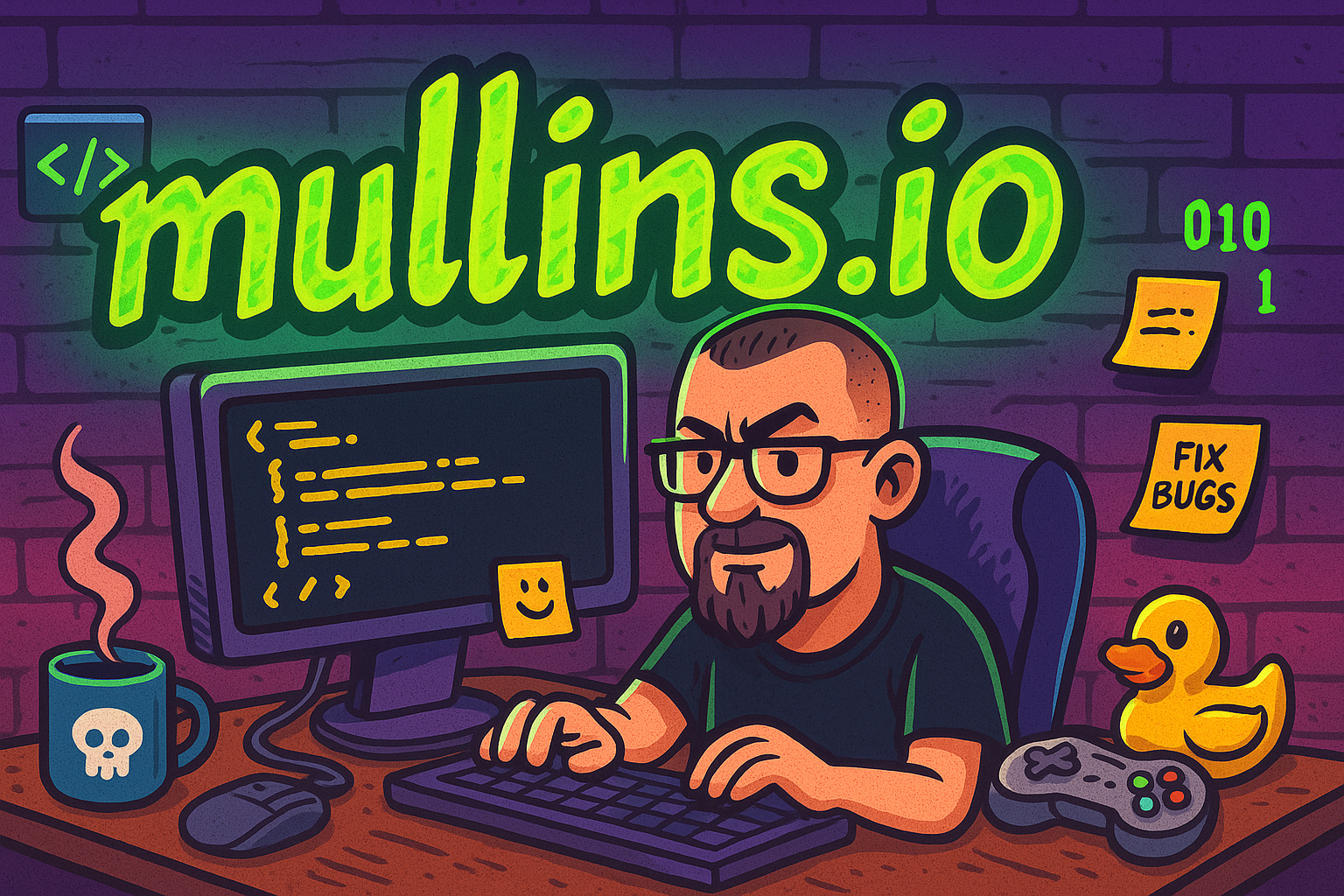

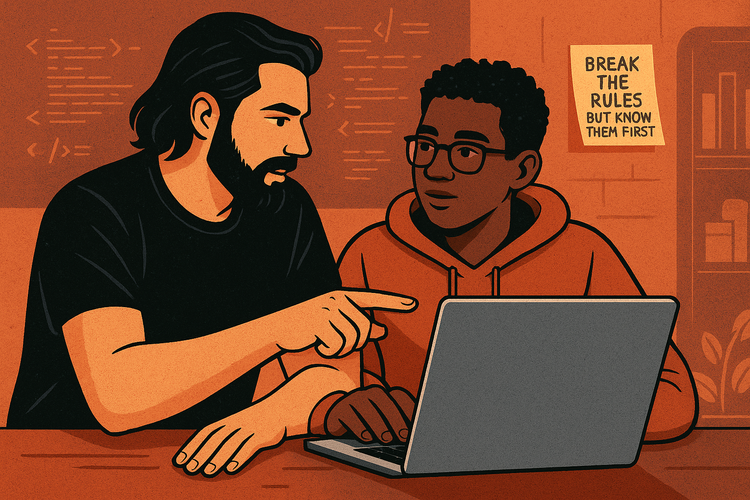
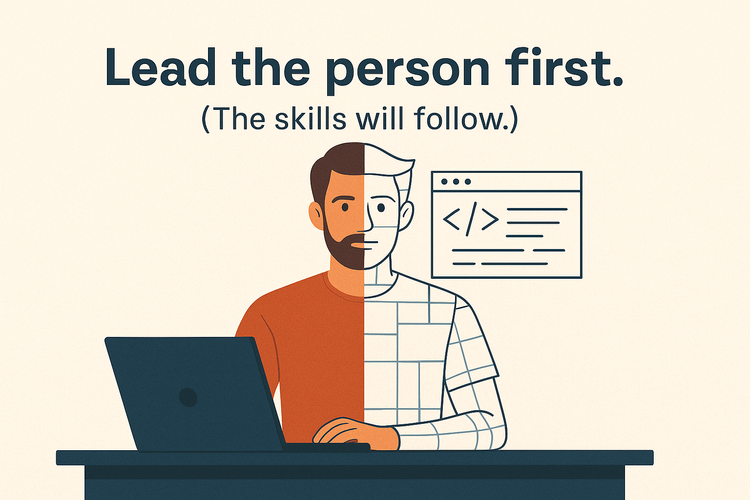
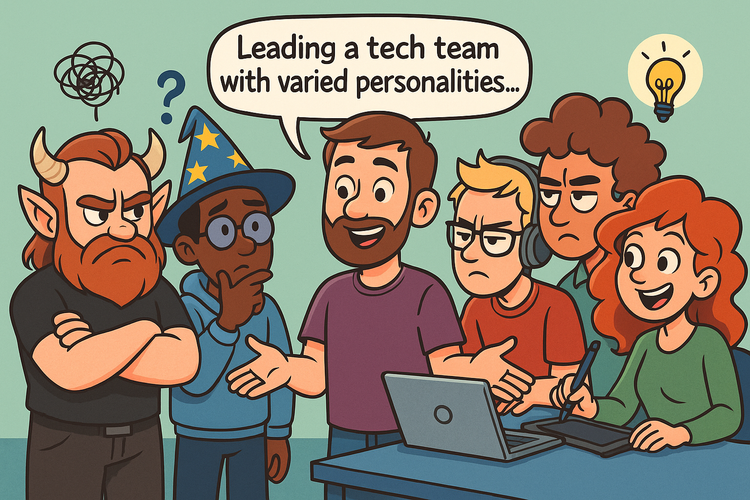
Comments ()